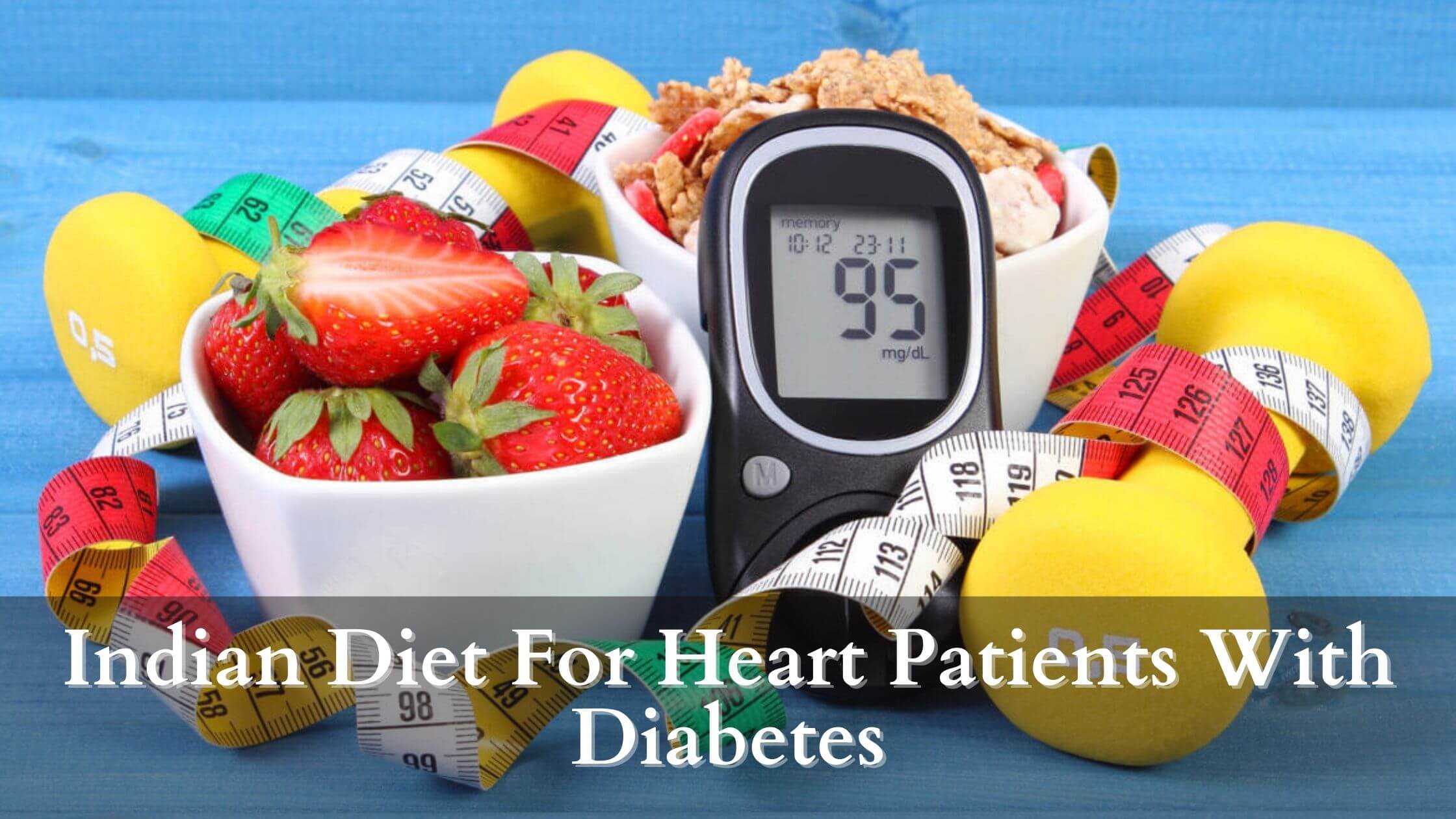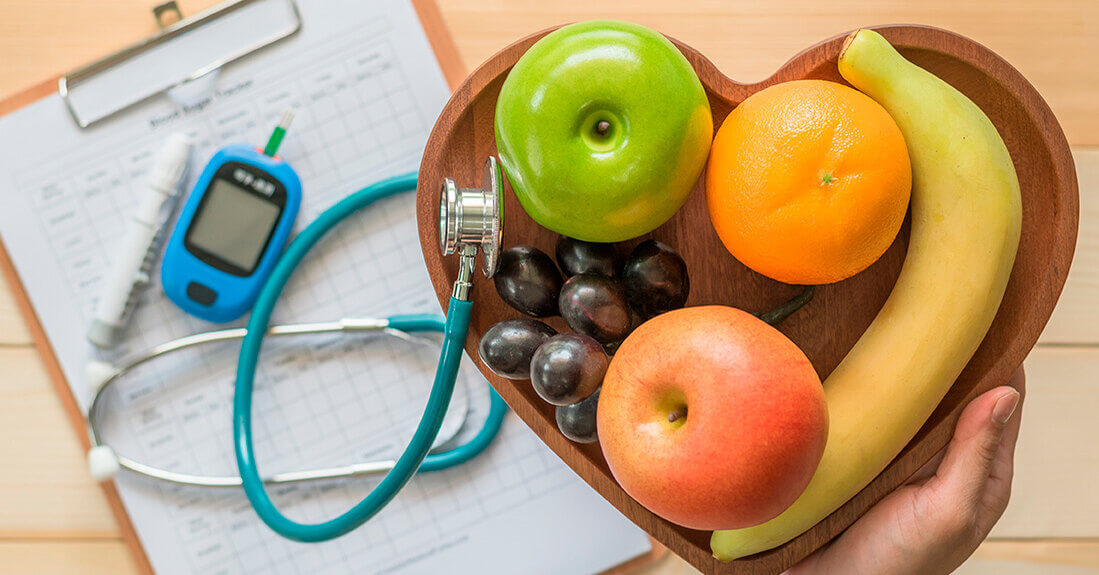Indian Diet For Heart Patients With Diabetes – Get Expert Dietitian Advice

-
Posted by
 Prachi Shah
Prachi Shah
There are many metabolic syndromes that are prevailing like thyroid, PCOS, diabetes, heart disease, and liver-related diseases. But the most common metabolic syndromes are “type 2 diabetes” and “heart diseases”. It is observed commonly in people living with you or around you. I am sure you can locate at least 1 family member having one of the above-mentioned disorders.
Indian Diet For Heart Patients With Diabetes
Heart disease is one of the metabolic syndromes where diseases like congestive heart failure, heart attack, coronary heart disease, and other cardiac disease happen due to high cholesterol, high blood pressure, family history, unhealthy & sedentary lifestyle, and sometimes uncontrolled diabetes.
Diabetes (type 2) is a metabolic disorder that causes high blood sugar (hyperglycemia) Blood glucose is the main storehouse from where we get the energy. In diabetes, the body either doesn’t make insulin or can’t effectively use insulin. There are many cure to diabetes but one major cure is to stay healthy with proper nutrition & an active lifestyle.
Now that we know what these two common disorders are, let’s focus on what a heart-healthy Indian diet for diabetes heart patients, looks like and what all does it include. A heart-healthy diet focuses on nutrition from whole grains, unsaturated fatty acids, proteins from whole grains, eggs & lean meats & high fiber foods which can help to normalize high cholesterol, blood pressure, triglycerides levels, and also uncontrolled diabetes.
Following are some valuable features for the Indian diet for heart patients with diabetes :
- Compared to refined grains like maida include whole grains as they are high in fiber & are complex carbs that can release glucose at a slow pace & control the spikes in blood sugars. Examples of such grains are – barley, oats, quinoa, buckwheat, millets, brown rice, lentils, pulses, etc. These help to reduce the bad cholesterol aka LDL and risk of overall heart diseases.
- Consume high fiber fruits & vegetables available in the current season to up the fiber intake and to provide the body with vital micronutrients like vitamin C, vitamin A, Vitamin B complex, etc. These vitamins play a huge role in fighting even the smallest infection/inflammation in the body.
- Incorporate green leafy vegetables like spinach, kale, amaranth leaves, fenugreek leaves (methi), dill (suva), cauliflower greens, cabbage, etc in your daily diet as they contain vitamin K which improvises arterial functions.
- Eat protein-rich food sources in each meal. It may come from veg, vegan or non-veg sources like dals, pulses, eggs, dairy products, chicken, fish, etc. These can work on strengthening the muscle fibers of the heart and makes the heart pumping more efficient. Proteins also help in decreasing the level of triglycerides and improves insulin sensitivity. However, avoid fatty meat cuts like red meats.

- Choose cooking oils wisely. Olive oil, canola oil, and other vegetable oils are rich in monounsaturated and polyunsaturated fatty acids which can prevent further increase in cholesterol levels when eaten in a restricted amount. it is recommended that oil should not be consumed more than 3 tsp per day per person.
- Increasing sodium food sources can actually increase your risk of heart diseases so it is wise to reduce salt intake and added salt in the meals. Salt should be consumed not more than 2 tsp in a day. Herbs and spices give a dash of good flavour without adding much of salt in the foods. Moreover, avoid packet foods, canned foods, readymade pickles & sauces, papads, soy sauce, biscuits, bakery products, and fried food items to lower the risk of heart disorders.
- It is necessary to drink at least 3 liters of water in a day to keep yourself hydrated. This helps in the proper functioning of the hormones, gut health & improves digestion. It also aids in better chemical reactions in the body related to functioning of every cell perfectly.
- Elimination of refined carb like processed foods, bakeries, wafers, and chips, added sugars like syrups, flavoured dressings, and also red and processed meats that contain high amount of refined sugars & trans fat is a MUST.
- 7-8 hours of sound sleep is necessary for the restoration and recovery of our body.
Lastly, as per the American Diabetes Association (ADA) & American Heart Association (AHA) guidelines, a minimum of 30 minutes of moderate to high-intensity exercise is a must to keep the heart healthy & to promote overall wellness in the long term.

